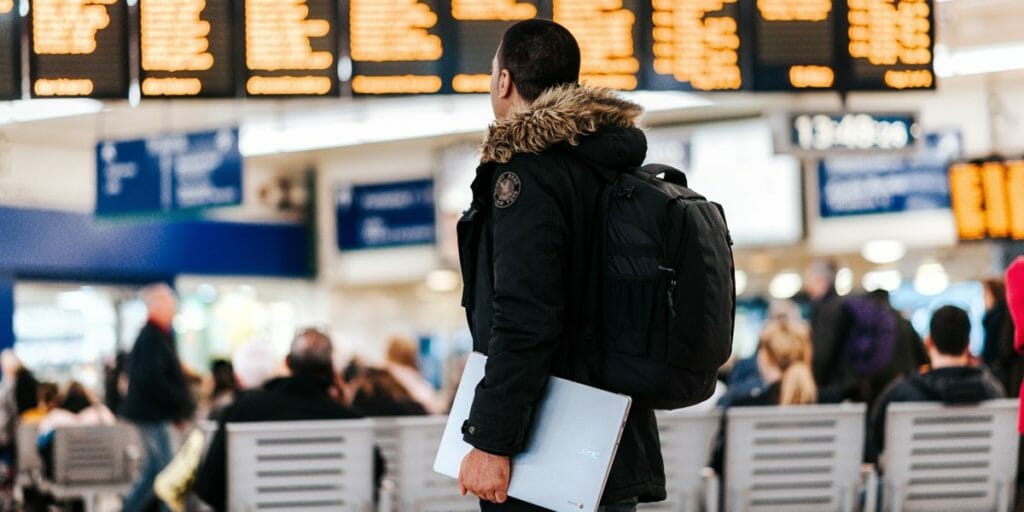
The term “Smart Tech” has many meanings for different people, and for travellers, this is no different. Travel is very much a technology-driven business.
As an example, my watch lets me board a flight, my luggage calls me if the airline loses it and an app which provides me with real-time public transport details of nearly any city in the world with just 4 taps is on my phone.
Smart tech for travel is more than just consumer electronics though. It’s also the software and developers who create hugely complex systems that translate into seamless user experiences for all of us.
These result in savings for time and money, often provide a more positive impact on the environment and offer travellers an extra bit of safety and security.
Travel Powered by Smart Tech
We’ve all been there before when a flight is delayed or cancelled, usually, due to inclement weather conditions or a technical failure. Any delay is never ideal.
But when it impacts your flight and potentially leaves you 1000s of miles away from home, a holiday or business meeting it can become a big issue very quickly.
To counter this, airlines are working with some of the biggest technology companies and cloud providers to empower their travellers and help them around any unexpected problems.
Previously, this would involve queuing at the airport helpdesk or a lengthy chat with a call centre. Thanks to Cloud technology, one US-based airline can now offer Dynamic Rebooking with just a few taps on their smartphone app.
Using the Cloud to Avoid the Clouds
With knowledge of your route, weather patterns, airport delays and the vast airline routings, the app can offer real-time alternatives if your original route gets delayed or cancelled.
Therefore keeping you on the move and getting you to your expected destination with as little of a delay as possible.
For most, the smartphone is the key device and gateway between the traveller and smart tech. Thanks to increasingly powerful handsets enabling developers to become more creative, these apps now offer us more control than ever before.
⚬ Read More: Is This the Future of Computing
Only two decades ago a smartphone just needed a physical keyboard and could receive an email.
Now, anyone can order a taxi to the airport with a GPS based car service app. Check-In for your flight and store your boarding pass. Inform your hotel of your arrival time, pick the room you wish to stay in and even unlock the door as you approach it.
During #MWC2018 I met Suzanne Lee who founded Pivotal Reality. An organisation that champions Virtual Reality as a method for improving social wellbeing for people living with Dementia.
Let Your Whole Family Experience your Next Trip
It was through this encounter I learned more about VR and the huge possibilities it opens up. Lenovo has a commercially available camera that can capture your travel photos and videos in the VR180 format, and potentially transform how you share your experiences.
⚬ Read More: {Tech} for Travel at #CES2019
Shooting in 4K video, the 13MP dual-lens pocket-sized camera can capture your travel like never before. But more importantly, lets you share it via a VR headset or even on YouTube.
Google has a good demo page of how this technology works with images and video on the web. But, for the best experience, it should be enjoyed with a headset.
How many of us have an elderly relative who wished they been to the place you last visited? Could VR transform travel photography?
Speak Like a Local
One of the oldest, and biggest, barriers to travel has been language. Smart tech, powered by Artificial Intelligence (AI), has now all but removed this problem for travellers.
Today, if we are not fluent in a local language we can turn to Smart Tech to help us. There are smartphone apps or bespoke palm-sized devices that offer near real-time translations. One even made the {Tech} for Travel Best Gadgets for Travel in 2019.
Saving Time & Paper
Taking a flight, or many can give you a large carbon footprint. So, every little can help when you’re trying to be resourceful and not so wasteful.
One tech-related device helping with this is Digital Bag Tags which will, eventually, see away with all those paper tags.
The technology is still in its infancy though. With plenty of restrictions on when it does/or doesn’t work but is something airlines appear to favour as the future.
One airline who recently rolled out this technology stated an airport Bag Drop can be as quick as 35 seconds!!
Join the Conversation
How has smart tech changed how you travel? What one piece of technology do you rely on more than any other when you are on the move?
Comment below or join the conversation on Twitter.

